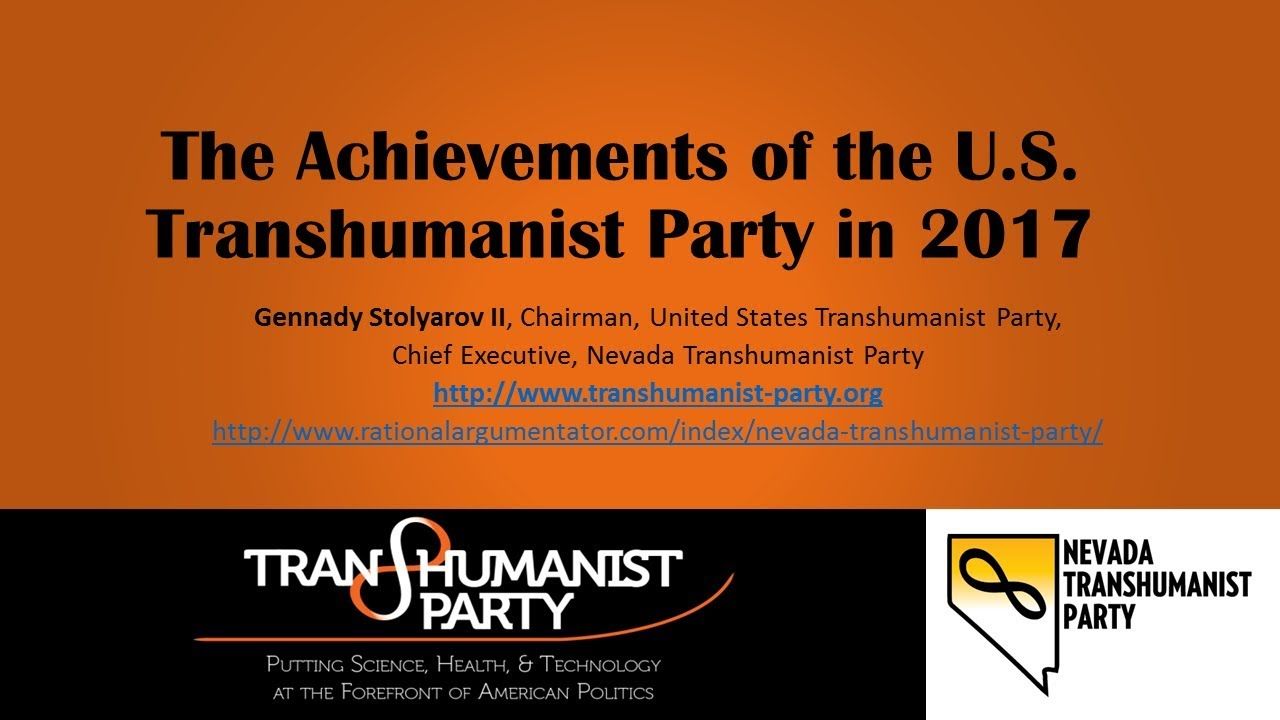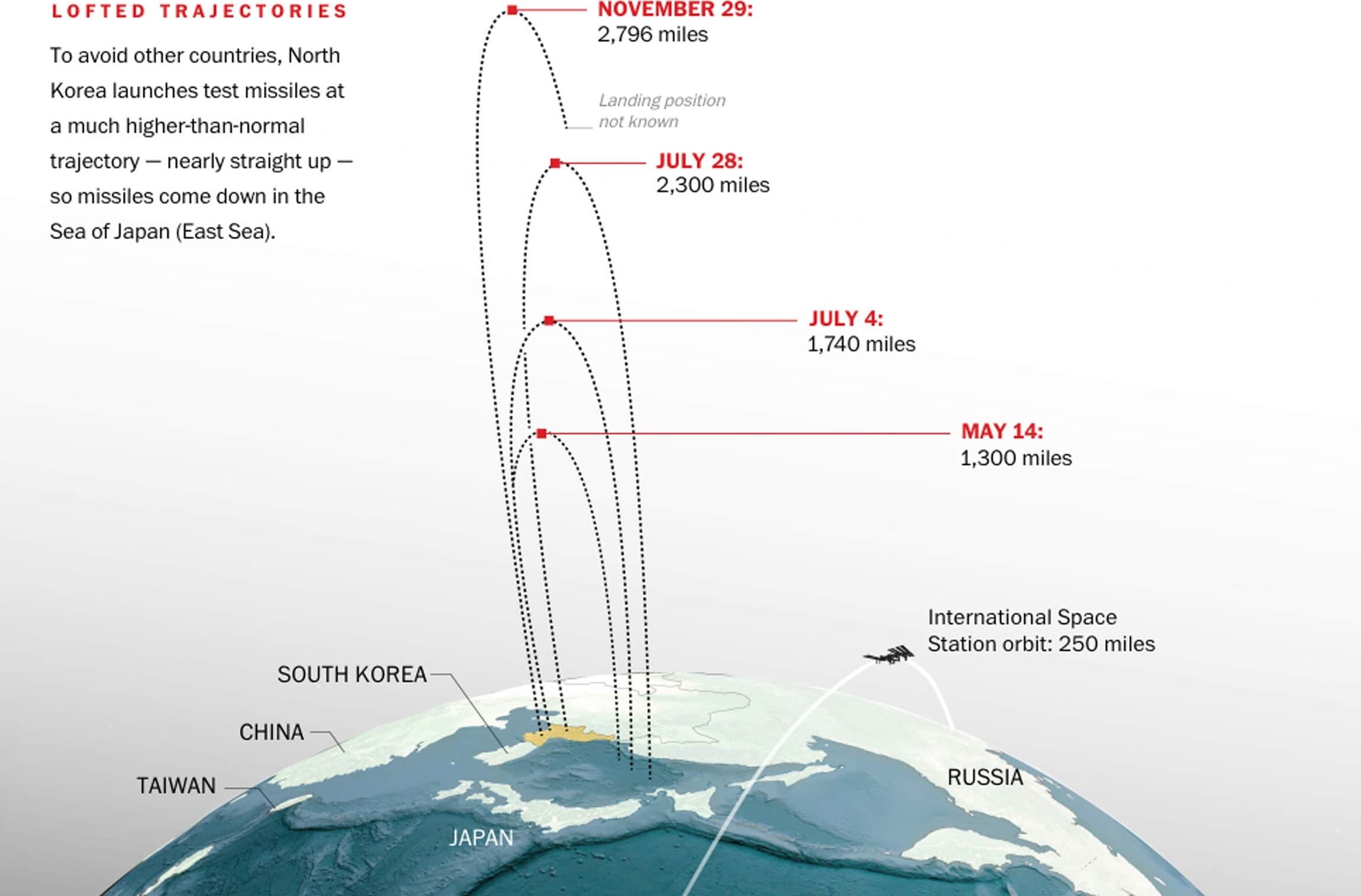Archive for the ‘policy’ category: Page 62
Nov 27, 2017
U.S. Transhumanist Party Chairman’s Anniversary Message
Posted by Zoltan Istvan in categories: geopolitics, policy, transhumanism

Some anniversary info from the Transhumanist Party, which I founded a few years back. This growing political party—under new leadership now—continues to prove important and inspiring. Congratulations to all those who have helped it forward! http://transhumanist-party.org/2017/11/25/ustp-chairman-anniversary/ #transhumanism
Gennady Stolyarov II
Continue reading “U.S. Transhumanist Party Chairman’s Anniversary Message” »
Nov 25, 2017
New systems must be put in place that can detect missile containers
Posted by John Gallagher in categories: military, policy, space
ANALYSIS/OPINION:
We have recently seen evidence of how our national security was compromised by the Obama administration’s approval of the Uranium One deal that gave Russia 20 percent of our uranium reserves. We are now learning more about the serious security compromise at Port Canaveral and its adjacent military infrastructure.
The container port is not only close to U.S. Air Force facilities and NASA’s Kennedy Space Center, but more importantly, it is adjacent to our strategic ballistic missile nuclear submarine base. A Nov. 2 Center for Security Policy updated “occasional paper” exposes this “perfect storm” of a threat tied to Russia’s Club-K container missile system.
Continue reading “New systems must be put in place that can detect missile containers” »
Nov 20, 2017
Christiana Figueres Europe Regional Round Table—United Nations Environment Programme Finance Initiative (UNEP FI)
Posted by Odette Bohr Dienel in categories: environmental, finance, governance, innovation, policy, sustainability

“Former Executive Secretary to UNFCCC, Christiana Figueres has laid down a challenge to UNEP FI’s banking members, and the wider finance industry to increase their allocations to low carbon investments to avoid a 2 degrees scenario. Watch her recording which she made for participants at UNEP FI’s Europe Regional Roundtable on Sustainable Finance which took place in October 2017.”
Tag: Banking
Nov 20, 2017
Fifty years since the first United Nations Conference on the Exploration and Peaceful Uses of Outer Space (1968 — 2018): UNISPACE+50 — United Nations Office for Outer Space Affairs (UNOOSA)
Posted by Odette Bohr Dienel in categories: business, environmental, governance, government, law, policy, science, space, space travel, treaties
“UNISPACE+50 will celebrate the fiftieth anniversary of the first United Nations Conference on the Exploration and Peaceful Uses of Outer Space. It will also be an opportunity for the international community to gather and consider the future course of global space cooperation for the benefit of humankind.
From 20 to 21 June 2018 the international community will gather in Vienna for UNISPACE+50, a special segment of the 61 st session of the Committee on the Peaceful Uses of Outer Space (COPUOS).”
Nov 20, 2017
The Policy Prognosis for AI: Winner of the SSUNS 2017 Essay Contest
Posted by Derick Lee in categories: economics, education, Elon Musk, employment, health, neuroscience, policy, quantum physics, robotics/AI, transhumanism
Furthermore, with advancements in quantum computing and machine learning, many notable public figures, including Stephen Hawking and Elon Musk, have indicated a growing concern with the imminent threat of AI surpassing human intelligence (Gosset, 2017). For instance, Darrell M. West, a political scientist, has proposed a protectionist framework that appeals to transhumanism, in which he restructures socioeconomic policy to account for changes in technology-induced unemployment. In particular, he posits that “Separating the dispersion of health care, disability, and pension benefits outside of employment offers workers with limited skills social benefits on a universal basis” (West, 2015). Expounding upon this equivocation, a more viable solution to potential unemployment is the realization of a multi-faceted policy which advocates the improvement of STEM-related education on a broad economic base, with habituation programs for the unskilled workforce. That is, with the implementation of appropriate and reformatory policies concerning the future development of AI technologies, this sector provides an economic incentive for new job creation, compatible with industrial development.
Prompt: What are the political implications of artificial intelligence technology and how should policy makers ensure this technology will benefit diverse sectors of society?
In recent years, the rapid development and mass proliferation of artificial intelligence have had various sociopolitical implications. It is a commonly held belief that the emergence of this technology will have an unprecedented impact on policies and political agendas. However, such discourse often lacks a geopolitical and social dimension, which limits the breadth of analysis. Further, little consideration has been given to potential employment and public policy reform. Growing concerns have been raised regarding the potential risk inherent in the evolution of strong AI, which provides the basis for transhumanism, whereby it is conjectured that AI will eventually be able to surpass human intelligence. As such, it is incumbent upon the upcoming generation of policymakers to implement and adopt necessary measures, which will provide a careful, multilateral framework, ultimately achieving market-oriented technological advancement with respect to employment and public policy.
Continue reading “The Policy Prognosis for AI: Winner of the SSUNS 2017 Essay Contest” »
Nov 13, 2017
Seven minutes of terror: AI activists turn concerns about killer robots into a movie
Posted by Klaus Baldauf in categories: drones, policy, robotics/AI

As if the mere phrase “killer robots” weren’t scary enough, AI researchers and policy advocates have put together a video that combines present-tense AI and drone technologies with future-tense nightmares.
The disturbing seven-minute movie is being released to coincide with a pitch being made on Monday in Geneva during talks relating to the U.N. Convention on Certain Conventional Weapons, or CCW.
Nov 8, 2017
U.S. officials are having a ‘Sputnik moment’ over AI innovation in China
Posted by Dan Kummer in categories: climatology, economics, policy, quantum physics, robotics/AI, security, sustainability
Today’s Sputnik moment is China’s rapid growth as an economic and technological superpower. In 2017 alone, China has outpaced the United States in renewable energy efforts and has become the standard-bearer in combating climate change and advocacy for globalization. Similarly, China is rapidly moving towards taking the lead in technology from the United States and is looking at quantum computing and artificial intelligence as areas for growth to do so.
The Verge recently published an article citing Alphabet chief executive officer Eric Schmidt’s perspective that the United States is falling behind when it comes to research and development in artificial intelligence, particularly compared to the rapid pace of innovation that China has set in the field. Schmidt, who is also the chair of the Defense Innovation Advisory Board, gave those remarks as part of a discussion at The Artificial Intelligence and Global Security Summit held by The Center for a New American Security (CNAS), a nonprofit think tank dedicated to research and analysis on how the United States can make informed policy-making decisions on national security and defense.
Nov 2, 2017
Google’s former CEO says US could fail in the AI competition with China
Posted by Dan Kummer in categories: military, policy, robotics/AI
Alphabet chairman Eric Schmidt says the US is at risk of falling behind in the race to develop cutting-edge artificial intelligence. Speaking at a tech summit organized by national security think tank CNAS, Schmidt predicted that America’s lead in the field would continue “over the next five years” before China catches up “extremely quickly.”
“They are going to use this technology for both commercial and military objectives, with all sorts of implications,” said Schmidt, referencing a Chinese policy document outlining the country’s ambition to become the global leader in AI by 2030. Schmidt reiterated several familiar talking points in this debate, primarily that the US is failing to invest in basic research, and that a restrictive immigration policy hobbles the country’s ability to attract AI talent from overseas.
“Some of the very best people are in countries that we won’t let into America. Would you rather have them building AI somewhere else, or rather have them here?” said Schmidt. “Iran produces some of the top computer scientists in the world, and I want them here. To be clear, I want them working for Alphabet and Google!”
Continue reading “Google’s former CEO says US could fail in the AI competition with China” »
Oct 5, 2017
Pence Pledges the U.S. Will Go to the Moon, Mars and Beyond
Posted by Dan Kummer in categories: government, military, policy, satellites, space
Washington (AP) — Seated before the grounded space shuttle Discovery, a constellation of Trump administration officials used soaring rhetoric to vow to send Americans back to the moon and then on to Mars.
After voicing celestial aspirations, top officials moved to what National Intelligence Director Dan Coats called “a dark side” to space policy. Coats, Vice President Mike Pence, other top officials and outside space experts said the United States has to counter and perhaps match potential enemies’ ability to target U.S. satellites.
Pence, several cabinet secretaries and White House advisers gathered in the shadow of the shuttle at the Smithsonian Institution’s Steven F. Udvar-Hazy Center to chart a new path in space — government, commercial and military — for the country. It was the first meeting of the National Space Council, revived after it was disbanded in 1993.
Continue reading “Pence Pledges the U.S. Will Go to the Moon, Mars and Beyond” »














